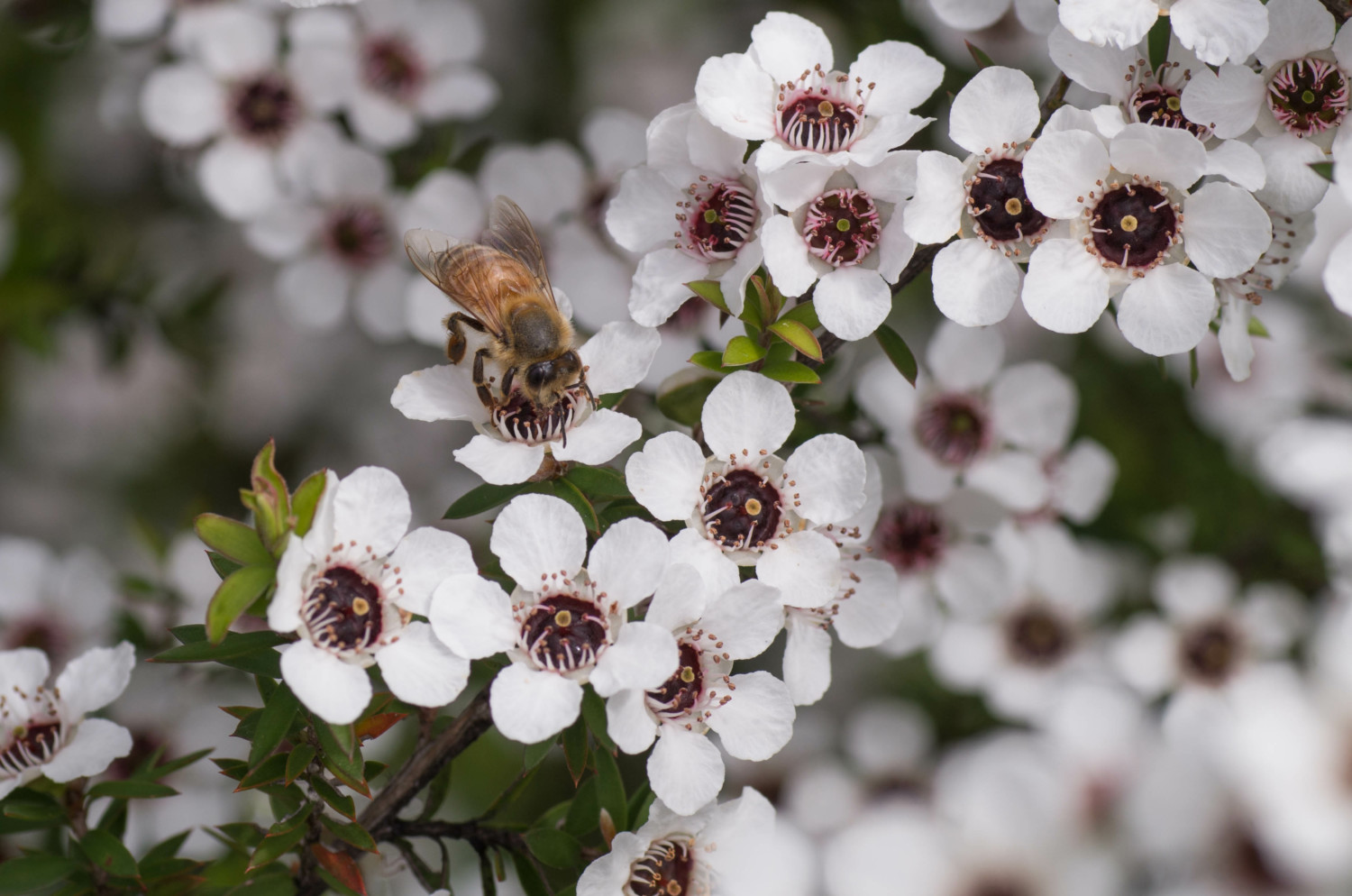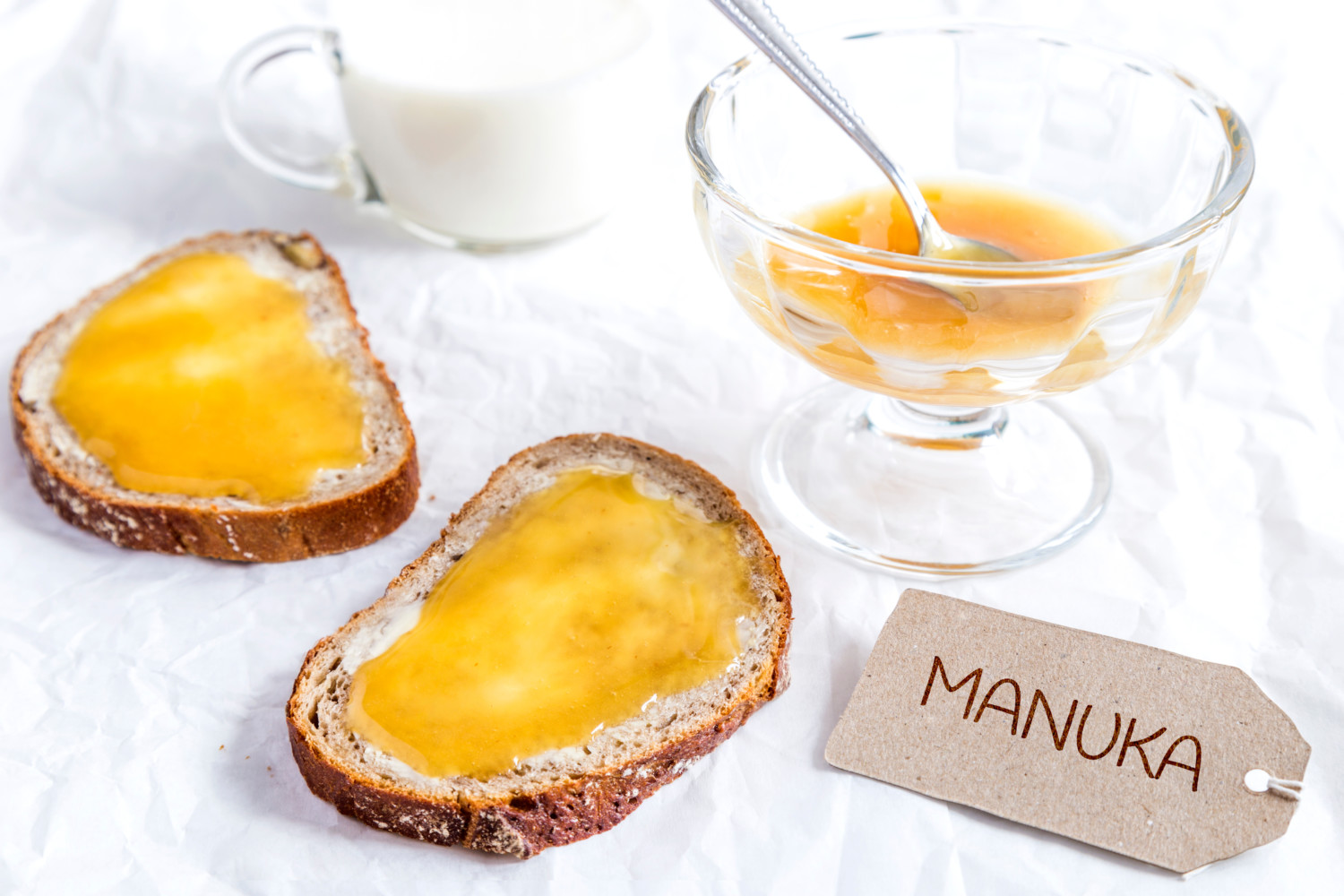Have you ever picked up a jar of manuka honey at the store, noticed the much higher price compared to other honeys and asked yourself, “Why is manuka honey so expensive, anyway?” This type of honey has been gaining popularity in recent years, and there’s a reason it costs so much more than regular honey — scarcity.
Manuka honey is rare because of its limited production and harvesting. It also has a distinctive flavor and has some uses and health benefits that may surprise you.
What Makes Manuka Honey Unique
Manuka honey is a unique type of honey produced only in New Zealand by European honey bees that pollinate the manuka bush, Leptospermum scoparium. The manuka plant is a hardy evergreen shrub or small tree with distinctively rigid leaves featuring a sharp tip and white or pink flowers. These flowers only bloom for two to six weeks each year, between November and January.
This means that bees have as little as 12 days to collect the nectar of the manuka flowers and create the manuka honey yield of the entire year. In addition, because of the remote locations of many hives, harvesting the honey is an arduous task, and many areas can only be reached by helicopter. These factors help answer the question, “Why is manuka honey so expensive?”

Health Benefits of Manuka Honey
For centuries, the Maori people of New Zealand have used the Manuka tree in myriad ways. For instance, they used the bark and wood to make tools, weapons and even houses. They also used the bark, leaves and flowers for medicinal purposes.
Thanks to the nectar from which it is derived, the dark, intensely sweet and thick honey also has unique health properties. It has been suggested that this special honey even has the potential to act as a superfood for those looking for an extra boost in their diet. The nectar from the manuka flower gives this special honey three unique phytochemical markers and over 2,000 natural compounds, which is 20 times more than some conventional varieties.
With its antibacterial properties, Manuka honey has been used to heal wounds and even received FDA approval as a wound dressing. This antibacterial action is due to the compound methylglyoxal, which was found to inhibit the growth of all tested bacteria and dispel and eradicate biofilms effectively. Research has shown that manuka honey also has antioxidant and anti-inflammatory properties.
Manuka honey can be graded according to its level of antibacterial activity using a system called UMF, or Unique Manuka Factor. This grading system helps consumers identify high-quality manuka honey with more significant medicinal benefits than other types of honey.

Manuka Honey Uses
In addition to its health benefits, manuka honey is also used in skin and hair care products due to its natural moisturizing properties. It helps keep skin hydrated while providing antioxidant protection against environmental stressors like UV rays or air pollution.
Manuka honey can be consumed directly or applied topically to the skin. Research has shown it can help boost the immune system and fight off infections when taken internally. When applied topically, it can help heal wounds and reduce inflammation.
So why is manuka honey so expensive? The answer lies in its rarity, limited availability and numerous health benefits backed by science and scientific studies. In addition, its unique flavor profile makes it a popular choice for those looking for something special in their sweetener selection.
This story originally appeared on Simplemost. Check out Simplemost for additional stories.


